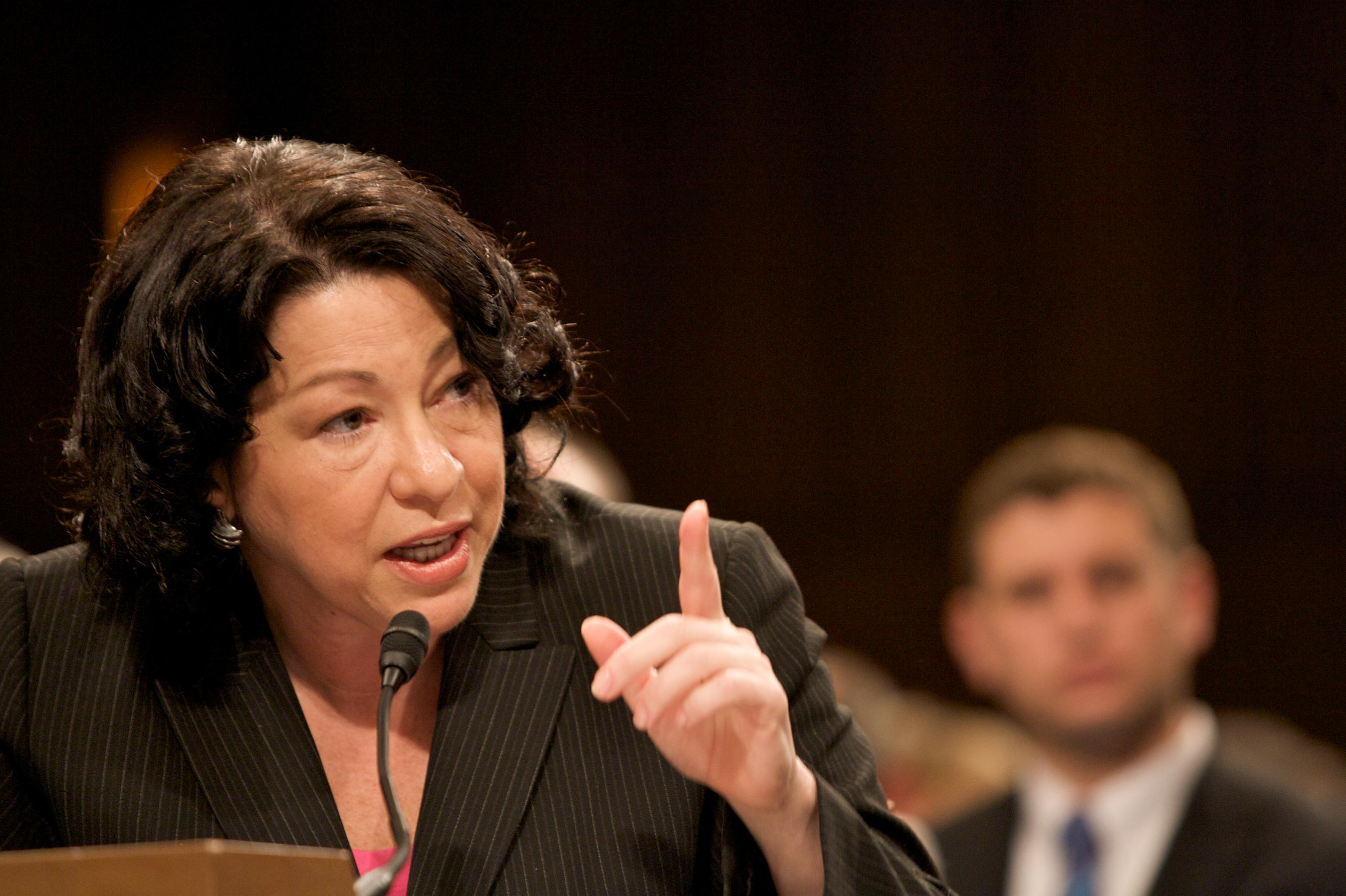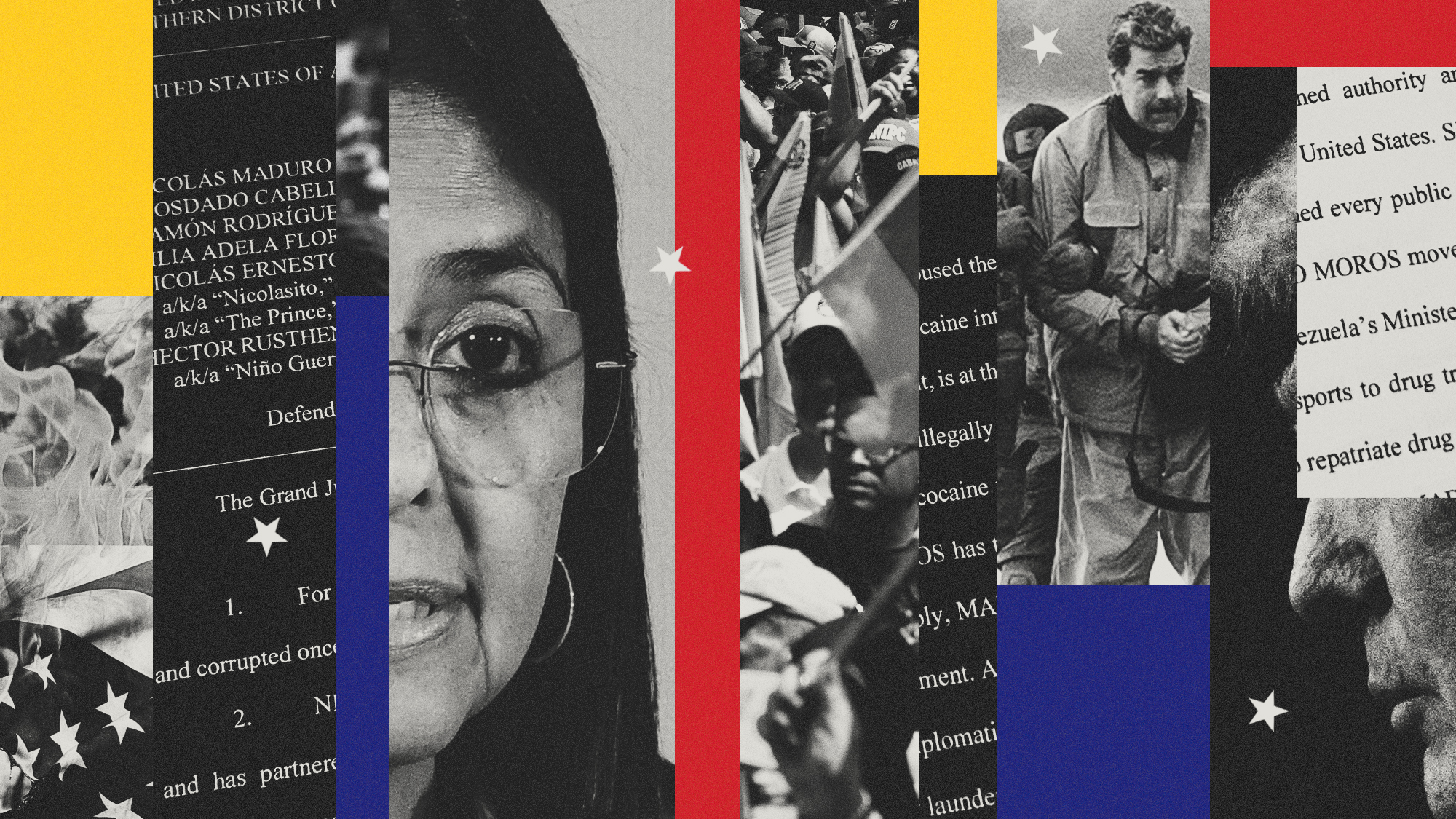Sonia Sotomayor's devastating defense of civil liberties
Her opinion in Utah v. Strieff was a masterpiece


Sonia Sotomayor's opinion Monday in the Supreme Court's Utah v. Strieff ruling was a masterpiece. It will be widely and deservedly quoted for years for its deep understanding of why Fourth Amendment violations matter. Unfortunately, her opinion was a dissenting one, in part because Stephen Breyer, a fellow Democratic nominee, doesn't really get the Fourth Amendment.
Edward Strieff was stopped by the police coming out of a house suspected to be a site for drug sales. This search — as the state of Utah did not even dispute — violated the Fourth Amendment, which requires more cause for a citizen to be stopped and have their identification checked. However, the police ended up finding that Strieff had a warrant for an outstanding traffic violation. This was used to justify searching his car, which uncovered illegal drugs and drug paraphernalia, leading to him being charged. The Utah Supreme Court held that this evidence had to be excluded because it was the fruit of the initial illegal stop of the defendant.
Since the lower court ruled in Strieff's favor, the eight-member Supreme Court decision should at worst have been a tie that resulted in the evidence being excluded. Unfortunately, Breyer — who has a regrettable history of siding with the state on Fourth Amendment questions — decided to join the remaining Republican nominees to create a gigantic loophole to the exclusionary rule. "Do not be soothed by the opinion's technical language," wrote Sotomayor. "This case allows the police to stop you on the street, demand your identification, and check it for outstanding traffic warrants — even if you are doing nothing wrong."
The Week
Escape your echo chamber. Get the facts behind the news, plus analysis from multiple perspectives.

Sign up for The Week's Free Newsletters
From our morning news briefing to a weekly Good News Newsletter, get the best of The Week delivered directly to your inbox.
From our morning news briefing to a weekly Good News Newsletter, get the best of The Week delivered directly to your inbox.
The majority opinion, written by Justice Clarence Thomas, was based on the so-called "attenuation" exception to the exclusionary rule: "Evidence is admissible when the connection between unconstitutional police conduct and the evidence is remote or has been interrupted by some intervening circumstance." Finding the arrest warrant, the Court held, was an intervening event that means that the evidence seized from Strieff's case did not have to be excluded as the poisonous fruit of the initial illegal search by the officers.
This holding is at war with the purpose of the exclusionary rule, which is to provide an effective deterrent to police misconduct. The fact that Strieff turned out to have an outstanding warrant for a minor offense unrelated to the illegal conduct of which he was suspected doesn't change the fact that the police benefited directly from an illegal search.
Indeed, Thomas' holding stands the exclusionary rule on its head, creating incentives for the police to engage in illegal misconduct. If you illegally ask for someone's ID and you don't find anything wrong, you're very unlikely to face a serious sanction. If you do find something, you might uncover evidence that leads to an arrest. This is precisely the kind of misconduct the exclusionary rule was intended to prevent, and, as Justice Elena Kagan explains in her own dissent, finding the outstanding warrant is constitutionally irrelevant.
Writing only for herself, Part IV of Justice Sotomayor's is a powerful and devastating defense of the exclusionary rule and why gutting it matters. The arbitrary powers this opinion effectively gives to the police will not be applied equally — there is no chance that the police will start stopping people walking around Stephen Breyer's neighborhood and asking to see their papers. These powers will overwhelmingly be used against the poor and people of color, who risk being treated "as second-class citizens."
A free daily email with the biggest news stories of the day – and the best features from TheWeek.com
Citing (among others) W.E.B. Dubois, James Baldwin, Ta-Nehisi Coates, and Michelle Alexander, Sotomayor concisely explains how this arbitrary authority will be disproportionately applied to the most vulnerable citizens. "The white defendant in this case shows that anyone's dignity can be violated in this manner," wrote Sotomayor. "But it is no secret that people of color are disproportionate victims of this type of scrutiny. For generations, black and brown parents have given their children ‘the talk' — instructing them never to run down the street; always keep your hands where they can be seen; do not even think of talking back to a stranger — all out of fear of how an officer with a gun will react to them."
Rewarding the police for illegal, suspicionless searches of people doing nothing wrong is also contrary to the basic individual privacy and equal citizenship the Bill of Rights and the 14th Amendment are supposed to guarantee. As Sotomayor puts it, the Court's holding "implies that you are not a citizen of a democracy but the subject of a carceral state, just waiting to be cataloged."
Sotomayor's argument is unanswerable, and while it's not a surprise to see the Court's Republican nominees ignore such concerns, it's appalling for Breyer to join them. It's not as if Breyer is unmindful of the issues Sotomayor raises, or has a generally bad record on civil rights issues. His dissent in Parents Involved v. Seattle School District is a brilliant, powerful demonstration of how formally equal legal language can conceal and reinforce racial hierarchies. But for whatever reason, he has a blind spot from applying this kind of analysis to some Fourth Amendment cases.
Sotomayor's dissent should be a landmark that helps set the liberal constitutional agenda should Hillary Clinton win and produce the first Democratic-majority Supreme Court in more than 40 years by filling Antonin Scalia's vacant seat. And one person who Clinton should not nominate for Scalia's seat is Merrick Garland. Obama's lame duck nominee looks too much like another Breyer on civil liberties issues. Senate Democrats should quietly help to ensure that Garland's nomination dies in the Senate after the election. And if Clinton needs inspiration for a pick, she could do a lot worse than looking to Sotomayor.
Scott Lemieux is a professor of political science at the College of Saint Rose in Albany, N.Y., with a focus on the Supreme Court and constitutional law. He is a frequent contributor to the American Prospect and blogs for Lawyers, Guns and Money.
-
 Venezuela’s Trump-shaped power vacuum
Venezuela’s Trump-shaped power vacuumIN THE SPOTLIGHT The American abduction of Venezuelan President Nicolás Maduro has thrust South America’s biggest oil-producing state into uncharted geopolitical waters
-
 Most data centers are being built in the wrong climate
Most data centers are being built in the wrong climateThe explainer Data centers require substantial water and energy. But certain locations are more strained than others, mainly due to rising temperatures.
-
 ‘Maps are the ideal metaphor for our models of what the world might be’
‘Maps are the ideal metaphor for our models of what the world might be’Instant Opinion Opinion, comment and editorials of the day
-
 Bari Weiss’ ‘60 Minutes’ scandal is about more than one report
Bari Weiss’ ‘60 Minutes’ scandal is about more than one reportIN THE SPOTLIGHT By blocking an approved segment on a controversial prison holding US deportees in El Salvador, the editor-in-chief of CBS News has become the main story
-
 Has Zohran Mamdani shown the Democrats how to win again?
Has Zohran Mamdani shown the Democrats how to win again?Today’s Big Question New York City mayoral election touted as victory for left-wing populists but moderate centrist wins elsewhere present more complex path for Democratic Party
-
 Millions turn out for anti-Trump ‘No Kings’ rallies
Millions turn out for anti-Trump ‘No Kings’ ralliesSpeed Read An estimated 7 million people participated, 2 million more than at the first ‘No Kings’ protest in June
-
 Ghislaine Maxwell: angling for a Trump pardon
Ghislaine Maxwell: angling for a Trump pardonTalking Point Convicted sex trafficker's testimony could shed new light on president's links to Jeffrey Epstein
-
 The last words and final moments of 40 presidents
The last words and final moments of 40 presidentsThe Explainer Some are eloquent quotes worthy of the holders of the highest office in the nation, and others... aren't
-
 The JFK files: the truth at last?
The JFK files: the truth at last?In The Spotlight More than 64,000 previously classified documents relating the 1963 assassination of John F. Kennedy have been released by the Trump administration
-
 'Seriously, not literally': how should the world take Donald Trump?
'Seriously, not literally': how should the world take Donald Trump?Today's big question White House rhetoric and reality look likely to become increasingly blurred
-
 Will Trump's 'madman' strategy pay off?
Will Trump's 'madman' strategy pay off?Today's Big Question Incoming US president likes to seem unpredictable but, this time round, world leaders could be wise to his playbook
